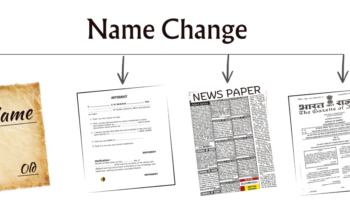Visa business plans offer numerous benefits for entrepreneurs seeking to establish or expand their businesses, especially for those planning to apply for a visa based on their entrepreneurial endeavours. These plans, often required for certain types of visas like the E-2 or L-1, serve as comprehensive documents outlining the business strategy, financial projections, market analysis, and more.
Here are some key benefits:
Demonstration of Viability
Immigration authorities require assurance that the proposed business is viable and likely to contribute positively to the U.S. economy. Well-crafted Visa business plans include financial projections, market analysis, and operational strategies that substantiate the feasibility and potential success of the business. This substantiation is crucial for obtaining a visa as it provides confidence to immigration officials about the sustainability of the venture.
Visa Application Requirement
One of the critical benefits of a Visa Business Plan is that it fulfills a crucial requirement for certain types of visas. For instance, the E-2 visa for investors and the L-1 visa for intracompany transferees necessitate a detailed business plan demonstrating the viability and potential success of the proposed business. A well-constructed plan can significantly bolster the visa application by showcasing a clear business model, market analysis, and financial projections, satisfying immigration authorities’ criteria.
Comprehensive Business Strategy
These plans necessitate a thorough examination of the business idea or expansion, forcing entrepreneurs to delve deeply into various aspects of their venture. From market research and competitor analysis to marketing strategies and operational plans, it compels entrepreneurs to craft a comprehensive blueprint for their business. This process not only aids the visa application but also serves as a valuable tool for the actual implementation and management of the business.
Financial Projections
Visa business plans require detailed financial projections, including revenue forecasts, expense estimates, cash flow analysis, and break-even points. This exercise helps applicants assess the financial viability and sustainability of their business endeavors. Moreover, it demonstrates to immigration authorities that the business has the potential to generate sufficient income to support the investor or transferring employee and create job opportunities in the host country.
Enhancing Communication and Understanding
Developing a visa business plan demands clarity in articulating business concepts, goals, and strategies. This process encourages entrepreneurs to communicate their vision effectively, whether to immigration officers, potential investors, or business partners. It fosters a deeper understanding of the business, enabling stakeholders to comprehend the mission, objectives, and operational framework.
Risk Mitigation and Contingency Planning
A well-crafted visa business plan also includes risk assessment and mitigation strategies. It prompts entrepreneurs to identify potential challenges, market risks, regulatory hurdles, and operational vulnerabilities. By acknowledging these risks and outlining strategies to address them, the plan demonstrates a proactive approach to managing uncertainties, thereby increasing the credibility of the business proposal.
Strategic Roadmap
A Visa business plan serves as a roadmap for the company’s growth and development. It lays out specific goals, milestones, and timelines, providing a strategic framework for the entrepreneur to follow. This roadmap not only assists in securing the Visa but also guides the entrepreneur in the day-to-day operations and long-term strategies for success.
Long-Term Planning and Growth
Visa business plans often encompass long-term goals and growth strategies. They encourage entrepreneurs to envision the trajectory of their business beyond the initial stages, outlining expansion plans, scalability, and potential avenues for diversification. This forward-thinking approach not only supports the visa application but also lays a foundation for sustained growth and development.
Investor Attraction
In some cases, Visa applications may require proof of sufficient investment or funding. A well-documented business plan can attract potential investors or lenders by showcasing the viability and potential profitability of the business. It provides a professional document that instills confidence in investors about the entrepreneur’s vision and the business’s prospects.
Compliance and Accountability
Visa business plans are detailed documents that outline the business’s adherence to regulatory requirements, including employment laws, tax obligations, and industry-specific regulations. They also establish a framework for accountability, as the business can refer back to the plan to ensure it stays on track and complies with legal and operational guidelines.
Operational Guidance and Benchmarking
Visa business plans not only serve as a means to obtain a visa but also act as a guide for the entrepreneur to execute their business strategies effectively. They set milestones, key performance indicators (KPIs), and timelines for the business’s growth, enabling the entrepreneur to measure progress and make necessary adjustments to achieve their goals.
Support in Decision-Making and Adaptation
As a dynamic document, a Visa business plan can evolve over time, reflecting changing market conditions, new opportunities, or unforeseen challenges. It provides a framework for making informed decisions and adapting strategies to navigate uncertainties, ensuring the business remains resilient and responsive to changing circumstances.
Feasibility Assessment
Crafting a Visa business plan involves conducting comprehensive market research and feasibility analysis. Entrepreneurs assess market demand, competition, and potential challenges, enabling them to make informed decisions about the viability of their business idea. This evaluation helps in refining strategies, mitigating risks, and adapting to market dynamics, increasing the chances of success.
Continuous Improvement and Adaptability
A Visa business plan is not static; it evolves with the business. As entrepreneurs gather data and experience, they can update and refine the plan, incorporating lessons learned and adjusting strategies. This flexibility enables businesses to adapt to market changes, emerging trends, and new opportunities, ensuring continued relevance and competitiveness.
Market Understanding
Through market analysis, entrepreneurs delve into the industry landscape, target audience, market trends, and competitors. This in-depth understanding helps in crafting effective marketing strategies, identifying niche opportunities, and positioning the business competitively.
Long-Term Business Vision
Crafting a visa business plan often prompts entrepreneurs to envision the long-term trajectory of their business. This exercise fosters strategic thinking and goal-setting, aligning short-term actions with the overarching vision.
Key Takeaway
Visa business plans serve as indispensable tools that not only fulfill visa application requirements but also provide a roadmap for entrepreneurial success. They compel entrepreneurs to thoroughly analyze and articulate their business concepts, fostering a deeper understanding of the market, financial projections, risks, and growth opportunities. Ultimately, these plans contribute significantly to the credibility and viability of the proposed business, both in the eyes of immigration authorities and for the actual execution of the business venture.




